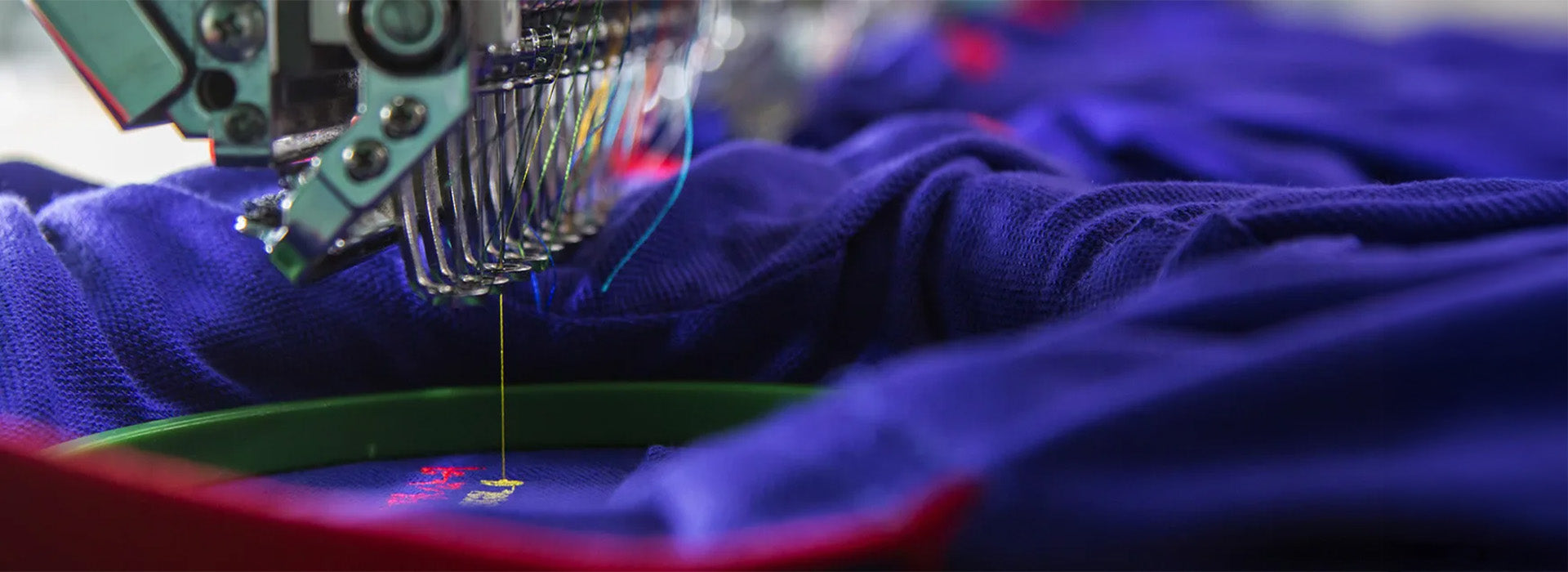When it comes to customizing Hi-Vis (high visibility) workwear, safety and durability matter just as much as branding, not every method performs equally well under the harsh environments. Hi-Vis garments are typically worn in, think construction sites, warehouses, highways, and industrial plants.
Let’s break it down:
1. Embroidery: Premium Look, Limited Utility
Best For: Corporate jackets, vests worn in office or light industrial settings
Not Ideal For: Garments needing certified visibility compliance
Pros:
● Long-lasting and high-quality appearance
● Thread withstands many washes
● Looks sharp and professional
Cons:
● Needlework can compromise reflective properties if placed over high-vis tape
● Not ideal for lightweight or waterproof garments—it can cause leaks or puckering
● Takes longer to produce and costs more per unit
Verdict: Looks great, but only if placed strategically, and preferably on non-reflective zones.
2. Printing (Screen/Heat Transfer): Fast, Flexible, Functional
Best For: Large logos, multi-color designs, compliance markings
Pros:
● Works well on polyester and breathable fabrics
● Doesn't affect garment waterproofing
● Cost-effective for large batches
● Safe placement on reflective gear (can go on approved zones)
Cons:
● May crack or fade with heavy industrial laundering
● Heat-transfer prints may peel over time if not applied properly
Verdict: Most versatile and compliant method for Hi-Vis gear used in rough environments. Especially good for logos on back panels or sleeves.
3. Patches: Durable, But Bulky
Best For: Branded uniforms or heavy-duty garments where visual ID is critical
Pros:
● Super durable if stitched or heat-sealed properly
● Easy to replace or swap (especially Velcro-backed)
● Can be reflective themselves
Cons:
● Adds weight and bulk
● May detach if not applied securely
● Can be uncomfortable if worn under harnesses or PPE
Verdict: Useful in modular gear setups or military/police Hi-Vis wear. Less common in civilian industrial settings.
So, What’s the Best Option?
|
Method |
Durability |
Safety Compliance |
Cost |
Best Use Case |
|
Embroidery |
High |
Moderate |
$$ |
Jackets, non-reflective zones |
|
|
Medium-High |
High |
$ |
All Hi-Vis garments, scalable |
|
Patches |
Very High |
Medium |
$$ |
Modular or heavy-duty gear |
Go with Print for Compliance, Mix in Embroidery for Brand Value
If your Hi-Vis garments need to stay certified, lightweight, and weatherproof, printing (especially screen or heat transfer) is your safest bet. Reserve embroidery for when you want to impress, like client-facing outerwear. Patches? Think specialty or limited-use uniforms.
Don’t leave visibility to chance.
Shop high-performance hi-vis clothing trusted by professionals across industries.



